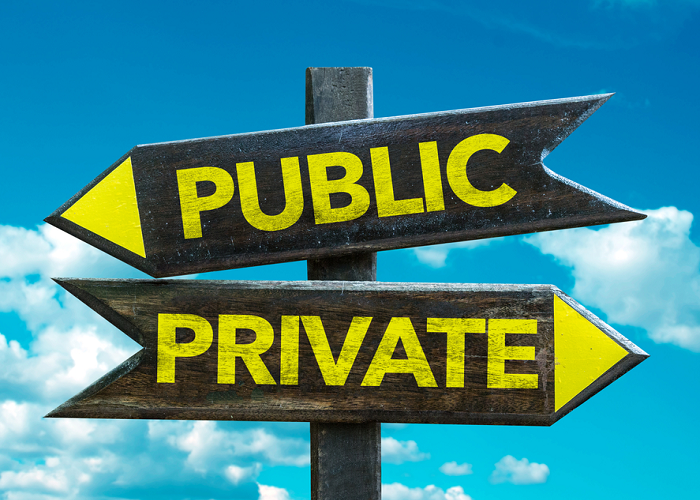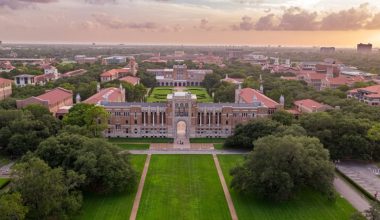Choosing between Public Vs. Private College is a significant decision that students and their families face when considering higher education. The choice between these two types of institutions can profoundly impact one’s academic experience, career prospects, and financial considerations.
Public and private colleges have unique characteristics, benefits, and drawbacks. Understanding the key differences between public and private colleges is crucial for deciding which type of institution best suits one’s educational goals and personal circumstances.
In this blog post, we have highlighted the various aspects of public vs. private colleges, their distinguishing features, academic offerings, campus culture, costs, and other factors to help prospective students navigate the decision-making process effectively.
Whether you are a high school student weighing your options or an adult learner considering a return to school, this article aims to provide valuable insights and guidance to help you make a well-informed choice that sets you up for success in your academic journey.
Table of Contents
- What is the main difference between public and private colleges?
- How does the cost of tuition compare between public and private colleges?
- What Are The Differences In Academic Offerings And Program Flexibility Between Public And Private Colleges?
- How Does Campus Culture Differ Between Public Vs. Private Colleges
- FAQs on Public Vs. Private College
- Conclusion
- References
- Recommendations
What is the main difference between public and private colleges?
The main difference between public and private colleges lies in their institutional ownership and funding. Public colleges are typically funded and governed by the state government, while a combination of tuition fees, private donations, and endowments finances private colleges.
This fundamental distinction leads to several notable differences between the two types of institutions.
- Ownership and Governance: Public colleges are owned and operated by the state government, which means they are subject to state regulations and policies. Private colleges, on the other hand, are privately owned and governed by independent boards or organizations.
- Funding: Public colleges receive significant funding from the state government, which often results in lower tuition costs for in-state students. Private colleges rely more on tuition fees and other sources of revenue, making them generally more expensive than public institutions. However, private colleges may offer more financial aid and scholarships to help offset costs.
- Size and Enrollment: Public colleges tend to have larger student populations due to their accessibility and affordability for in-state residents. Private colleges, being more selective and sometimes having smaller class sizes, often offer a more intimate and personalized educational experience.
Public Vs. Private Colleges?
- Academic Offerings: Both public and private colleges offer a wide range of educational programs, but private colleges may have more specialized and niche programs. Public colleges often have a broader array of majors and concentrations due to their larger size and funding.
- Reputation and Prestige: While there are exceptions, private colleges generally have a reputation for being more prestigious and selective than public colleges. However, it’s important to note that an institution’s importance does not solely determine the quality of education it provides.
- Campus Culture: Public and private colleges can have distinct campus cultures. Public colleges often have a more diverse student body and offer a broader range of extracurricular activities and organizations. Private colleges may have a stronger sense of community and more tightly-knit social networks.
Students must consider their needs, preferences, and financial circumstances when deciding between public and private colleges.
Factors such as cost, program availability, campus culture, and financial aid opportunities should all be carefully considered to make an informed decision that aligns with one’s educational and career goals.
Related Post: What Are the Pros and Cons of Using 529 Plans? What it is & How it Works
How does the cost of tuition compare between public and private colleges?
The cost of tuition is a significant factor to consider when comparing public and private colleges. Generally, public colleges tend to have lower tuition costs compared to private colleges, particularly for in-state residents. This difference is primarily due to these institutions’ funding models.
Public colleges receive substantial financial support from state governments, allowing them to offer lower tuition rates for students who are residents of the state.
At public institutions, in-state tuition is often significantly less expensive than out-of-state or international tuition. This affordability makes public colleges attractive for students seeking a more budget-friendly education.
Private colleges, on the other hand, rely heavily on tuition fees, private donations, and endowments to cover their operating costs. As a result, private colleges tend to have higher tuition rates.
However, it’s important to note that private colleges may also have more resources available for scholarships, grants, and financial aid. Many private institutions are committed to making education accessible and offer various financial assistance to support students with financial needs.
It’s worth considering that while private college tuition may be higher on average, some public universities, particularly prestigious ones or those out of state, may have tuition rates comparable to or even higher than specific private colleges.
Additionally, the availability of financial aid packages, scholarships, and grants can significantly impact the actual cost of attending a private college.
When comparing tuition costs between public and private colleges, it’s crucial to consider factors such as residency status, financial aid opportunities, scholarship availability, and the overall value and quality of education the institution provides.
Each student’s financial circumstances and priorities may vary, so it is essential to conduct thorough research and carefully evaluate the costs and benefits of both colleges.
Related Post: 15 Online Colleges in Arkansas for International Students | 2024
What Are The Differences In Academic Offerings And Program Flexibility Between Public And Private Colleges?
The difference in academic offerings between public and private colleges can vary depending on factors such as the institution’s size, available resources, and the specific focus of the college. However, there are some general distinctions worth noting.
Public colleges often have a broader range of academic offerings than private colleges. Due to their larger size and funding, public institutions can support various majors, concentrations, and departments.
They may have extensive programs in multiple fields, such as business, engineering, social sciences, humanities, and natural sciences. Public colleges also offer a diverse range of specialized programs and interdisciplinary studies.
While private colleges offer a wide range of academic disciplines, they often take a more focused and specialized approach. They may strongly emphasize specific fields such as liberal arts and sciences or professional programs like business, health sciences, or fine arts.
Flexibility Between Public And Private Colleges
Private colleges may offer smaller class sizes and a more intimate learning environment, allowing for closer interactions with professors and a greater depth of study within a particular discipline.
Moreover, private colleges sometimes have the flexibility to create unique and innovative academic programs that align with emerging fields or niche areas of study.
These programs may be designed to address specific industry demands, interdisciplinary research, or societal needs. Private institutions are often free to adapt and shape their academic offerings readily.
It’s important to note that both public and private colleges can provide high-quality education across various disciplines. The specific academic offerings will vary from institution to institution.
Prospective students should research the programs, faculty expertise, research opportunities, and alums outcomes to assess how well an institution aligns with their academic and career goals.
Related Post: How Long is Sixth Form in the UK? A Guide To Private Sixth Form In The UK
How Does Campus Culture Differ Between Public Vs. Private Colleges
The campus culture of public and private colleges can differ in various ways, stemming from factors such as size, funding, and the overall mission and values of the institution.
While these are general observations, it’s important to note that every college has its unique culture, and individual experiences may vary.
Public colleges often have larger student populations, leading to a more diverse and dynamic campus culture. They attract students from a wide range of geographic and socioeconomic backgrounds.
Public colleges often have a vibrant social scene with numerous clubs, organizations, and events catering to diverse interests. The larger public institutions also mean a broader range of sports teams, extracurricular activities, and student resources.
In contrast, private colleges typically have smaller student populations, which can foster a more close-knit and community-oriented campus culture. With smaller class sizes and a lower student-to-faculty ratio, private colleges often provide more personalized attention and stronger relationships between students and faculty.
Campus Culture Difference Between Public Vs. Private Colleges
Private institutions may emphasize a sense of belonging, offering a supportive and collaborative environment where students can develop strong connections with their peers and professors.
Private colleges may focus more on specific values or traditions, reflecting the institution’s mission and philosophy. This can result in a distinct campus culture emphasizing academic excellence, intellectual curiosity, or social responsibility.
Private colleges often foster a sense of pride and loyalty among their students and alums, which can contribute to a tight-knit and engaged community.
Both public and private colleges can have active student life and offer opportunities for personal growth and leadership development. However, the campus culture can vary widely based on the college’s location, history, student demographics, and institutional priorities.
When considering campus culture, prospective students must visit campuses, interact with current students, attend campus events, and explore extracurricular activities to get a firsthand sense of the atmosphere and community.
Each college has its unique character, and finding the right fit in terms of campus culture is an essential aspect of the college selection process.
Related Post: University of California-Berkeley College Majors Data
FAQs on Public Vs. Private College
Public colleges are typically funded by the state government and offer lower tuition rates for in-state students. In contrast, private colleges rely on tuition fees and private funding, making them more expensive.
Not necessarily. While some private colleges have a reputation for prestige, both public and private colleges can provide high-quality education. An institution’s importance does not solely determine its quality.
Public colleges often have a broader range of academic offerings due to their larger size and funding. However, private colleges may offer more specialized programs in specific fields.
Private colleges often have smaller classes, allowing for more personalized attention and closer interactions with professors. Public colleges may have larger class sizes depending on the specific institution and program.
Public colleges tend to have lower tuition costs, particularly for in-state residents. Private colleges are generally more expensive but may offer more financial aid and scholarships to offset expenses. The actual affordability depends on factors such as financial aid packages and individual circumstances.
Conclusion
Choosing between public vs. private colleges is a significant decision that can significantly impact a student’s educational journey. Public colleges often offer lower tuition costs, a broader range of academic programs, and a more diverse campus culture.
On the other hand, private colleges may provide a more personalized and intimate learning environment.
Ultimately, the decision should be based on individual preferences, financial considerations, academic goals, and overall fit.
It is very important for students to thoroughly research and visit colleges, consider their own needs and aspirations, and weigh the benefits and drawbacks of each type of institution to make an informed choice that sets them up for success in their educational pursuits.
References
- bestcolleges.com ____ Private vs. Public Colleges: What’s the Difference?
- leverageedu.com ____ Public vs Private Universities: Which one to Choose?



